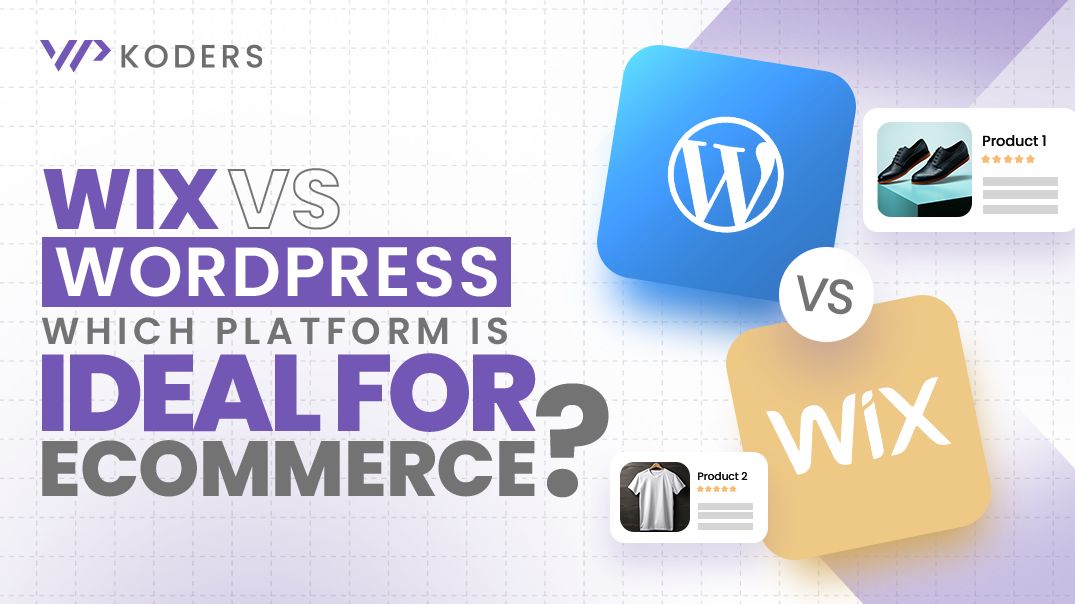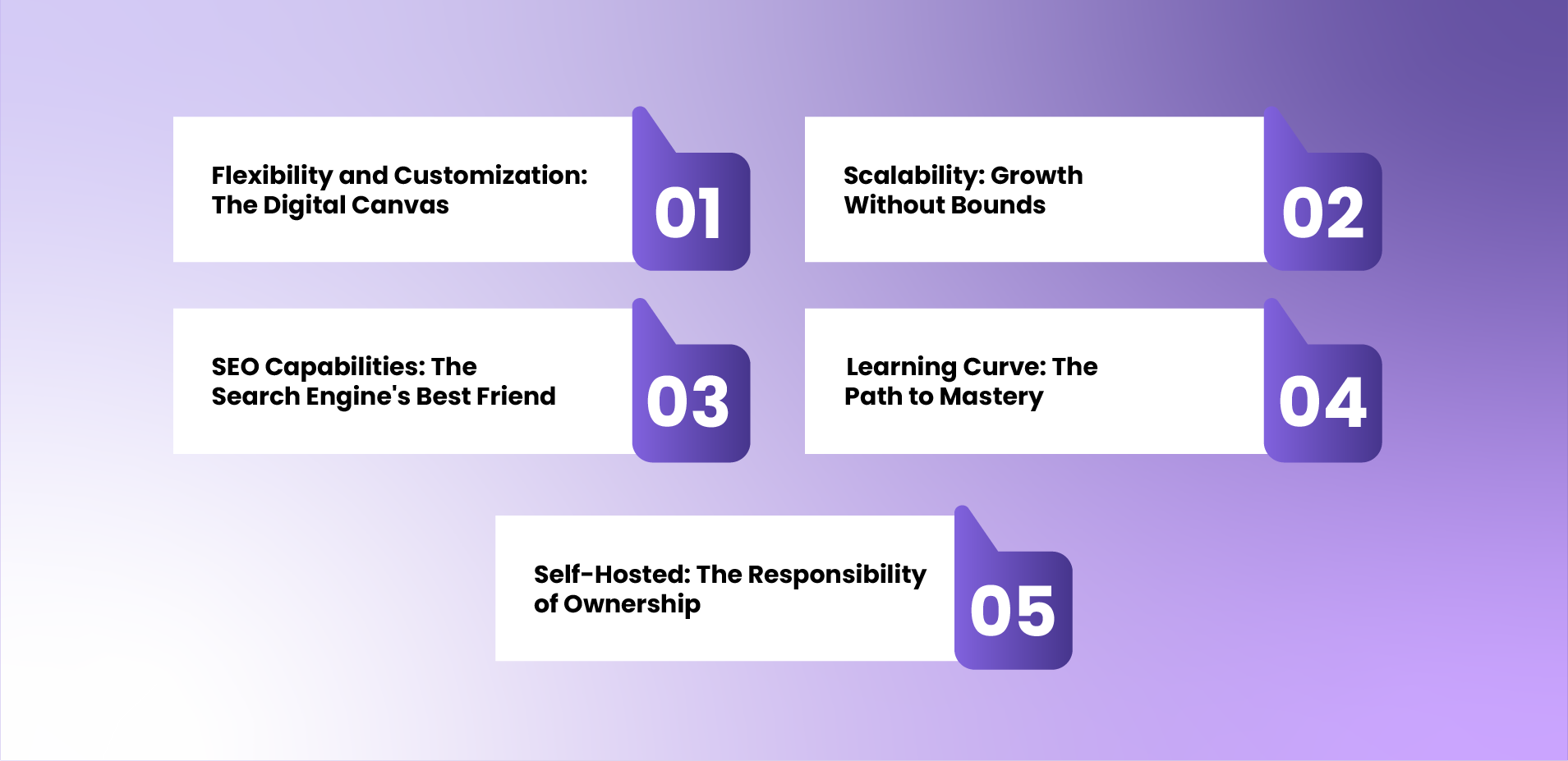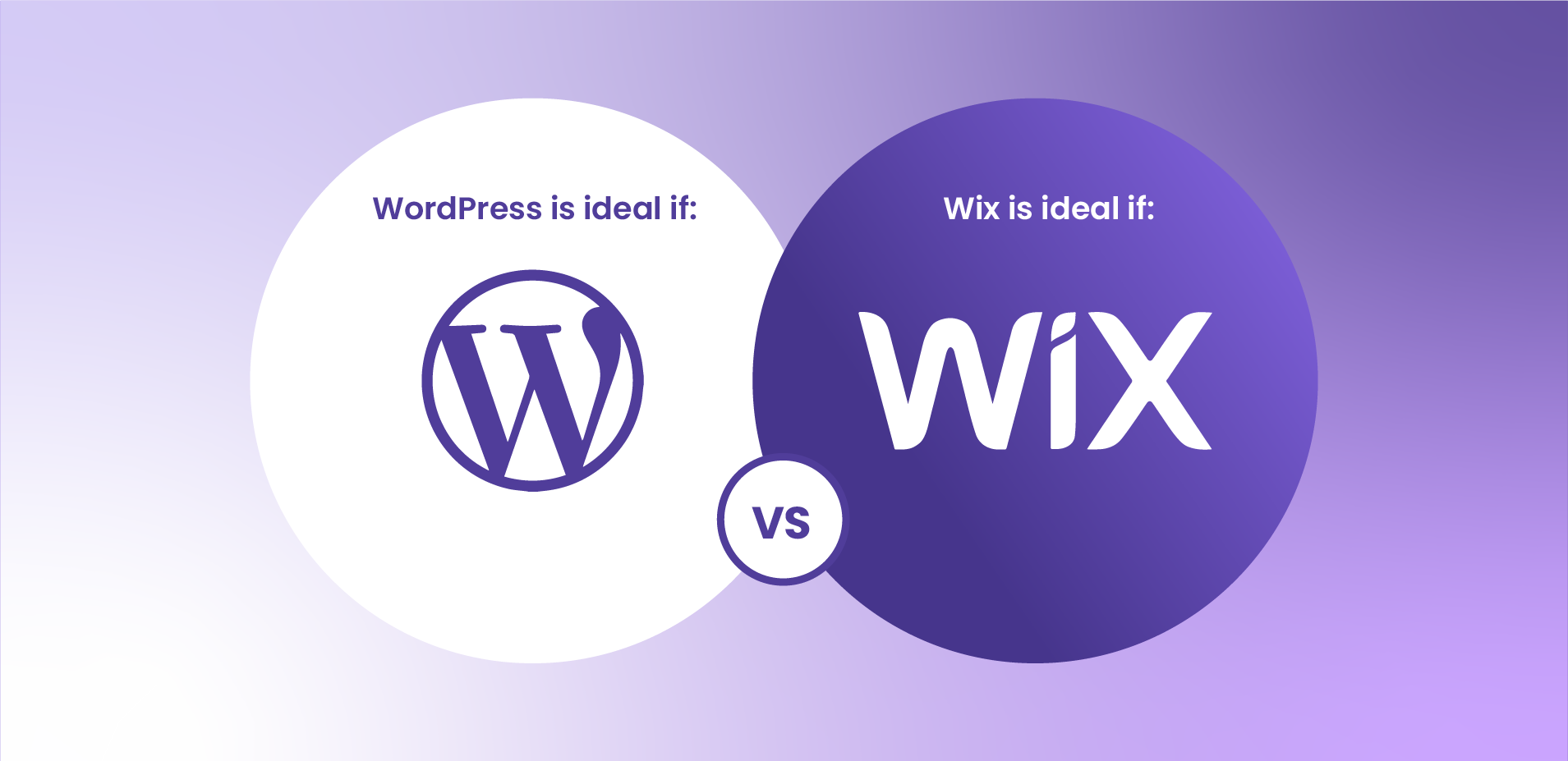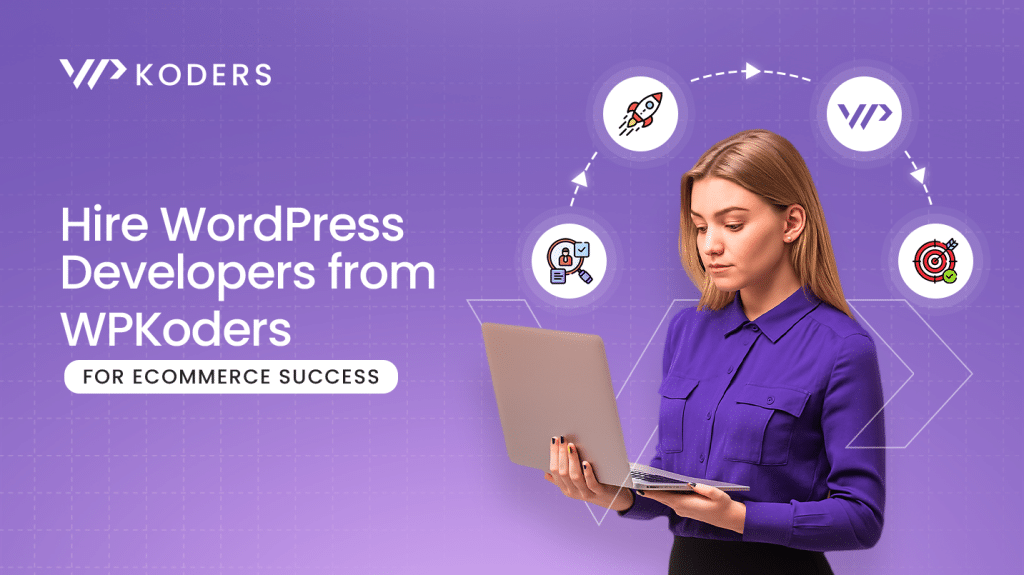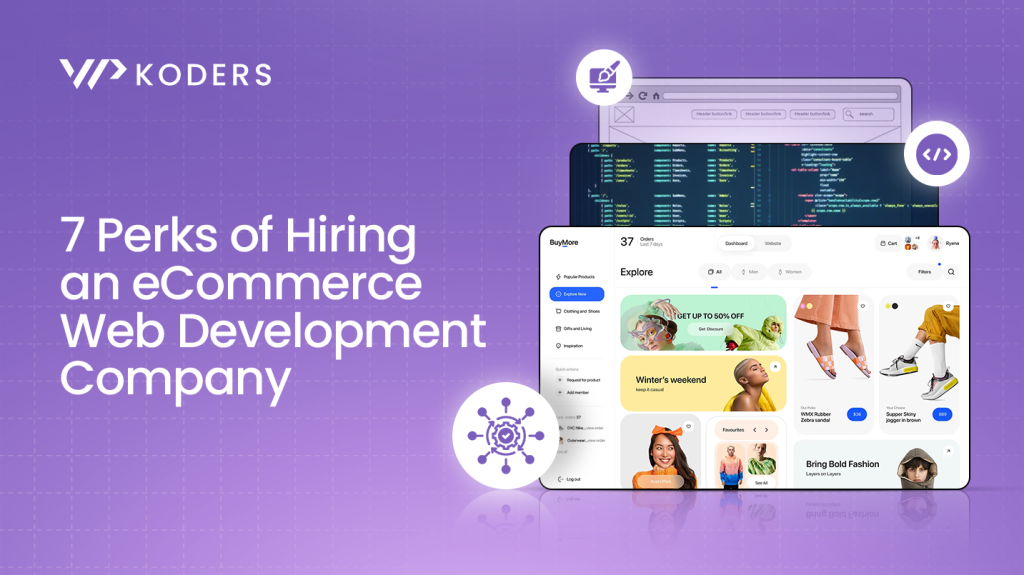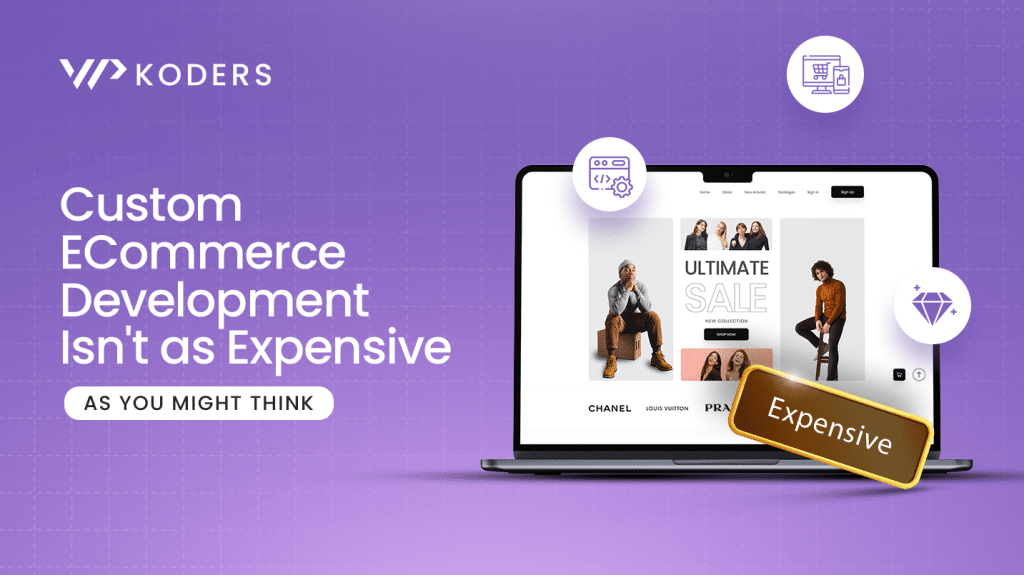There are countless avenues for creating an online presence, but with many debates on which one is best. Two such debates are gaining momentum: WordPress vs Wix and WooCommerce vs Shopify. All these are formidable platforms for ecommerce stores, yet they serve distinct audiences and fulfill different needs. We will address the Wix vs WordPress debate for now. Think of it like choosing between a sleek, all-in-one sports car and a customizable, powerful off-roader. One offers immediate gratification and ease, while the other provides matchless control and off-road adventure for those on the wheel. This blog will cover their strengths and weaknesses to find the perfect fit for your digital trip.
Wix: The Intuitive All-in-One Solution
Wix is the go-to platform for individuals and small businesses seeking a swift and straightforward path to online visibility. It’s often lauded as the ‘beginner’s dream’ for good reason.
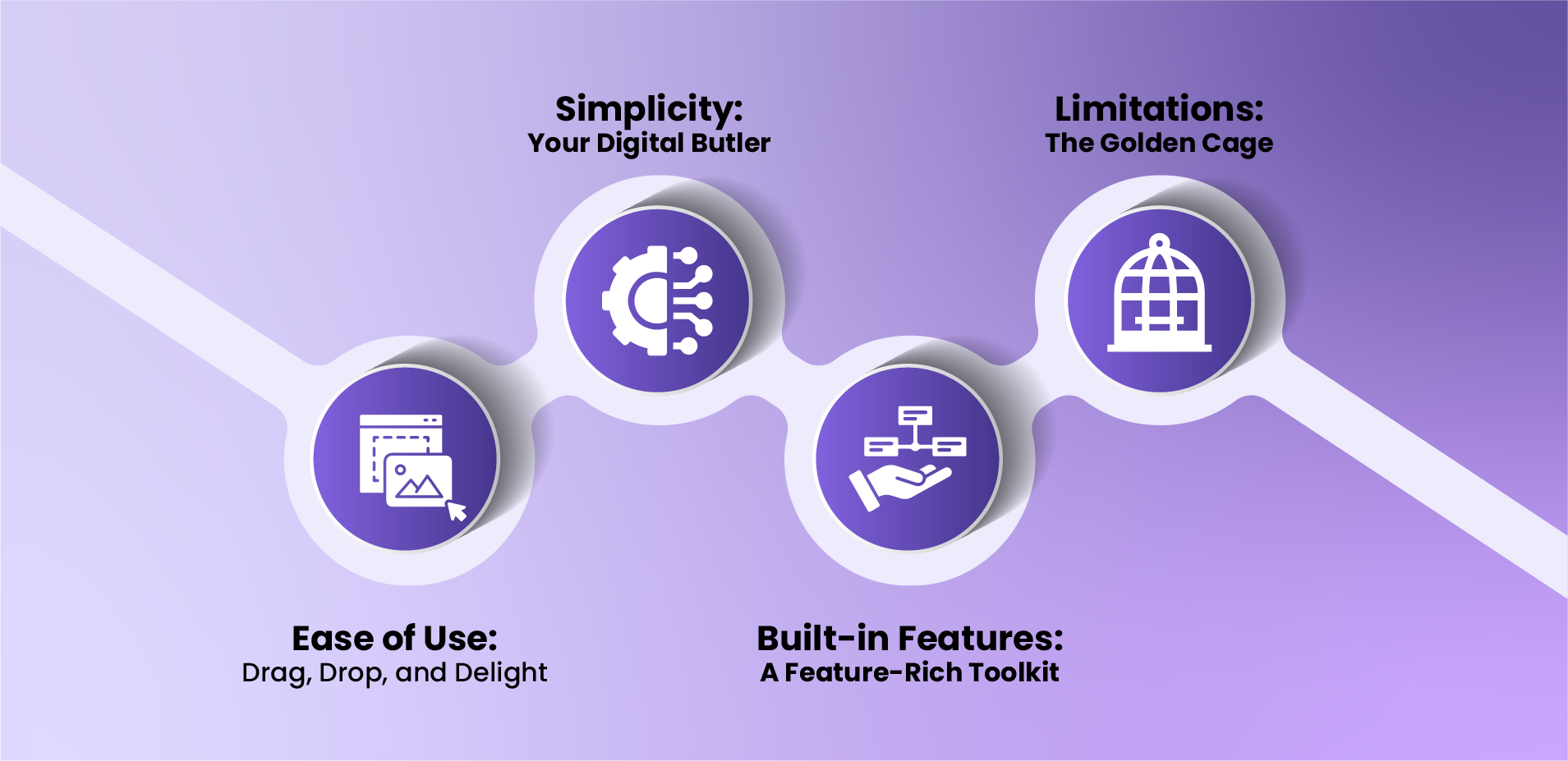
Ease of Use: No Code Development
Imagine crafting your website like a digital jigsaw puzzle. That’s the essence of Wix’s unparalleled ease of use. Its drag-and-drop interface is remarkably intuitive, allowing users to visually arrange elements on their pages without writing code. Want to move an image? Click and drag. Need to resize a text box? Grab a corner and adjust. This visual simplicity democratizes website creation, empowering anyone, regardless of technical prowess, to bring their digital vision to life. The process feels more like designing a brochure than building a complex piece of software, making it incredibly appealing for non-technical entrepreneurs.
Simplicity: The Digital Butler
Wix offers a ‘set it and forget it’ experience for many fundamental aspects of website management. As a hosted platform, Wix takes on the responsibility of hosting your website, ensuring it’s always accessible to your visitors. But it doesn’t stop there. It also handles crucial back-end tasks like security updates, protection against vulnerabilities, and automatic backups, safeguarding your precious content. It liberates users from the worries of server management, software installations, or security patches, allowing them to grow their business. It’s like having a digital butler who keeps everything running smoothly behind the scenes, so you can be The Batman.
Built-in Features: A Feature-Rich Toolkit
Wix isn’t just about pretty designs; it’s a comprehensive ecosystem brimming with built-in functionalities to cater to various website needs. From SEO tools for search visibility to robust ecommerce capabilities to easily set up stores, it provides a holistic solution. Its extensive ‘App Market’ functions much like an app store for your phone, offering applications to extend the website’s functionality. Whether you need a booking system, a live chat widget, or email marketing integration, Wix usually has a built-in app.
Limitations: The Golden Cage
While Wix’s simplicity is a significant strength, it also introduces certain limitations. The very structure that makes it so user-friendly can also restrict advanced customization. Similar to a beautiful, pre-fabricated home, you can choose the paint color and furniture, but you can’t move the walls. When it comes to modifying themes, integrating third-party services outside the app market, or building complex, bespoke functionalities, it’s difficult. As your business grows and your needs become more intricate, you might find yourself bumping against the platform’s inherent boundaries.
WordPress: The Powerhouse of Customization
WordPress is the open-source behemoth of the web, well-known for its immense power, unparalleled flexibility, and seemingly endless customization possibilities. It’s an ideal choice for those who want ultimate control and are willing to invest time in learning its intricacies.
Flexibility and Customization: The Digital Canvas
If Wix is a pre-designed home, WordPress is a sprawling plot of land with all the raw materials and tools imaginable. As an open-source platform, WordPress grants users an extraordinary level of control over every aspect of their website. This flexibility stems from its vast ecosystem of themes and plugins. Themes dictate the visual appearance and basic structure, while plugins add virtually any functionality you can dream of. For those with technical know-how, the ability to dive into custom coding means there are virtually no limits to what you can create. This makes WordPress the ultimate digital canvas for designers, developers, and businesses with unique or evolving needs.
Scalability: Growth Without Bounds
One of WordPress’s most attractive advantages is its inherent scalability. Whether you’re launching an ecommerce store with thousands of products or building a complex enterprise-level website, WordPress can handle it. Its robust architecture and available themes, plugins, and hosting options assist your business growth without requiring platform migration. This long-term viability makes it a popular choice for businesses seeking growth, ensuring the website won’t outgrow its capabilities.
SEO Capabilities: The Search Engine’s Best Friend
WordPress is friendly to search engines for many good reasons. Its clean code, flexible structure, and an abundance of powerful SEO plugins make it an incredibly effective platform for marketers. Plugins like Yoast SEO or Rank Math help optimize meta descriptions, title tags, XML sitemaps, schema markup, and content analysis. It allows users to implement intricate SEO strategies, ensuring their website is not only visible but also ranks for keywords. While Wix is improving its SEO offerings, WordPress still maintains a significant edge for those aiming for search engine visibility.
Learning Curve: The Path to Mastery
With great power often comes a steeper learning curve. Unlike Wix’s intuitive drag-and-drop, setting up and managing a WordPress site requires a greater degree of technical understanding. Users need to grasp concepts like themes, plugins, databases, and potentially even some basic coding. Visual page builders make WordPress more accessible to non-developers, but the initial setup and ongoing maintenance demand engagement. Beginners might face a period of adjustment and learning before they feel completely comfortable using the platform.
Self-Hosted: The Responsibility of Ownership
‘WordPress.org’ is the open-source version, and it’s a self-hosted platform. While the WordPress software itself is free, securing your web hosting and domain name is your responsibility. This grants immense control over your website’s environment, but it also requires you to manage updates, backups, and security. While many hosting providers offer managed WordPress plans for some of these tasks, it’s fundamentally different from Wix’s all-inclusive approach. Choosing WordPress means you own your digital real estate, but you’re also responsible for its upkeep.
Which Platform is Ideal for eCommerce?
The choice between WordPress vs Wix ultimately boils down to your specific needs, comfort level with technology, and long-term aspirations.
Wix is ideal if:
- You’re a beginner seeking a quick and easy way to launch a professional-looking website.
- You prioritize simplicity and prefer an all-in-one, hosted solution that handles technical complexities for you.
- Your website needs are relatively straightforward, such as a portfolio, small business site, or basic online store.
- You appreciate a wide range of built-in features without needing deep customization.
WordPress is ideal if:
- You require advanced customization and the flexibility to build virtually any type of website.
- Scalability is crucial for your long-term vision, anticipating significant growth and evolving functionalities.
- You are comfortable with a steeper learning curve and are willing to manage your hosting, updates, and security, or invest in a managed WordPress service.
- You demand the most robust SEO capabilities and granular control over your website’s performance in search engine rankings.
Conclusion
Choosing between Wix vs WordPress depends on your unique needs: Wix for simplicity, WordPress for power. As this guide shows, each has distinct advantages and demands. Don’t navigate this complex decision alone. Consult WPKoders for expert guidance on platform selection, comprehensive ecommerce website development, and store optimization. Our assistance ensures your online presence is set for growth, regardless of the platform, converting visitors into loyal customers.
